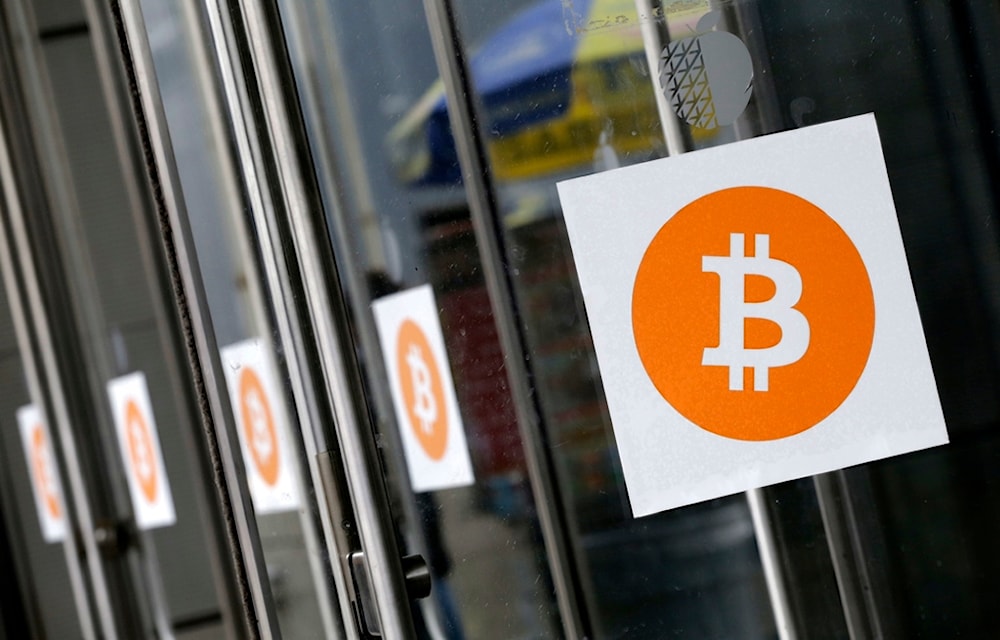Bitcoin falls over 5% to $81K after US tariff announcement
The losses come just months after Bitcoin hit an intraday high of $109,114.88 on January 20, marking a nearly 25% drop from its 2025 peak.
-

Bitcoin logos are displayed at the Inside Bitcoins conference and trade show on April 7, 2014, in New York (AP Photo/Mark Lennihan, File)
Bitcoin dropped sharply on Thursday, shedding more than 5% in value as financial markets around the world responded to the US government's latest trade move—an aggressive tariff strategy announced by President Donald Trump.
The price of the world's leading cryptocurrency fell to around $81,812 on Binance, marking a 5.93% drop within 24 hours. CoinMarketCap, which tracks data across multiple exchanges, reported a 5.46% decline, placing the average price at $81,769 as of 17:25 GMT.
$BTC at $81,981 is bearish below SMA 13 ($82,495.63). SMAs in downtrend, RSI at 38.95 signals oversold. MACD shows bearish trend with -60.55 hist. Bearish FVG resistance at $83,036.60. #bitcoin #btc #cryptotrading #cryptocurrency #tradingbot pic.twitter.com/o7VKnvpyNf
— Cookie.ai (@cookiebot_ai) April 3, 2025
The losses come just months after Bitcoin hit an intraday high of $109,114.88 on January 20, marking a nearly 25% drop from its 2025 peak. The cryptocurrency’s recent slide suggests a notable shift in sentiment, as investors retreat from risk assets in light of deepening global economic uncertainty.
The latest dip was triggered by President Trump's April 2 executive order, which imposed a 10% base tariff on all imports starting April 5. A second round of steep reciprocal tariffs targeting countries with substantial trade surpluses—such as China, the EU, and Japan—is set to take effect April 9.
The fallout was swift across asset classes. The S&P 500 plummeted 4.6%, the Dow Jones shed over 1,200 points, and the Nasdaq Composite dropped by more than 5%, marking the worst trading day in months. Analysts say the financial sector's volatility has spilled over into crypto markets, as investors flee from risk-sensitive assets amid fears of a full-blown trade war.
Bitcoin, typically viewed as a hedge during times of economic or currency instability, has in recent years also become entangled with broader market sentiment. Its latest price drop underscores the deepening anxiety among investors navigating the economic consequences of renewed protectionism.
With financial conditions tightening and global trade prospects facing headwinds, attention is now turning to central banks—particularly the Federal Reserve—as markets brace for further turbulence.
Read more: WTO Chief warns of global trade contraction as US tariffs spark alarm

 2 Min Read
2 Min Read










